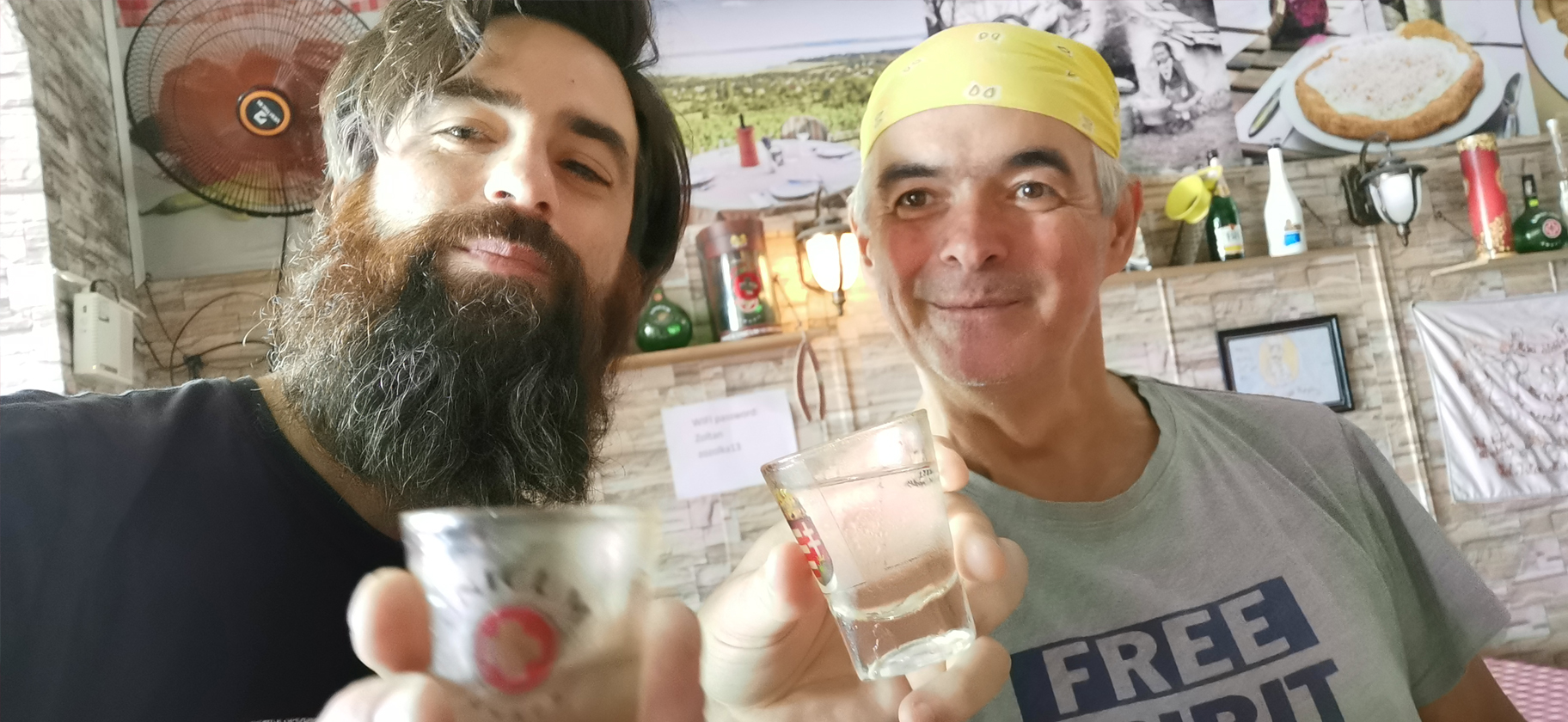Zoltan’s Little Hungary
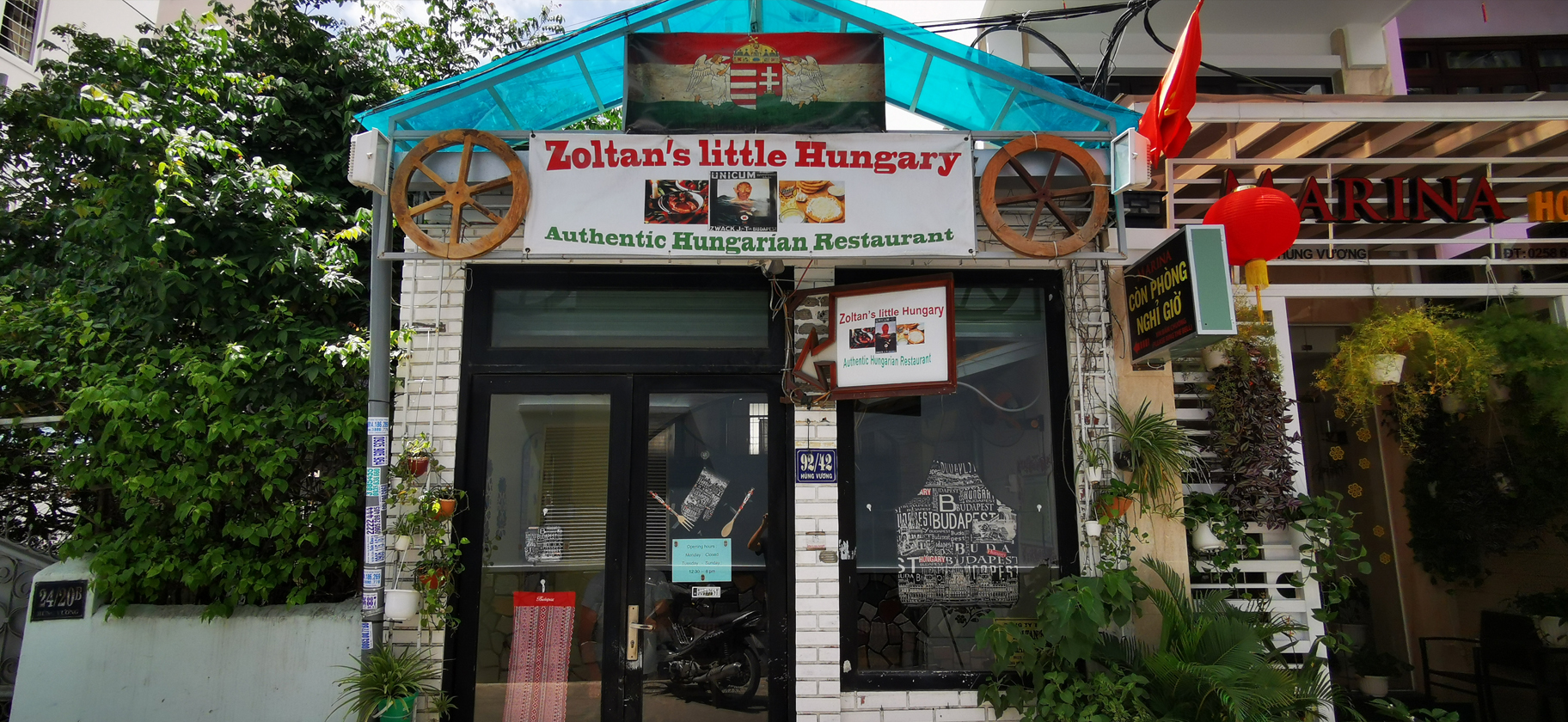
The noodle soup shop from the night before had disappeared like a mirage in the desert and I found myself aimlessly wandering through every alleyway in downtown Nha Trang when I happened upon the familiar piros, féhér, zöld of the Hungarian flag. It was a simple old home sandwiched between the highrises and hotels of the downtown core that lines the beach. Inside were a few tables and benches and decorative bottles of Unicum. As I perused the menu, I giggled at the serendipity of happening upon what I would have imagined being the only Hungarian restaurant in all of Vietnam. A man came to the door and, like a good Hungarian, I greeted him as politely and distinctly Hungarian as I could, “Jó napot kívánok!”
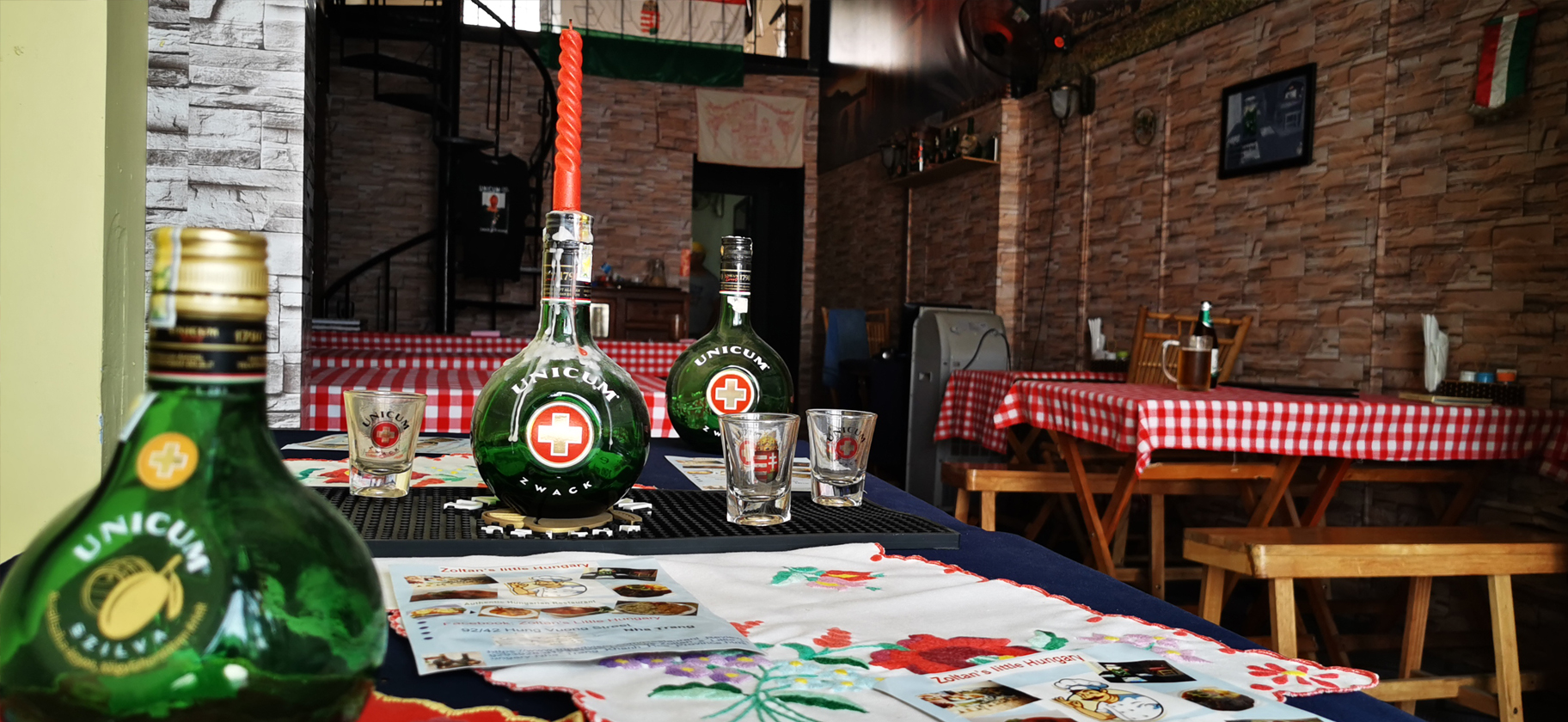 His eyes widened and a broad smile flashed across his face. Zoltan, the owner, was as surprised to hear someone speaking Hungarian as I was to happen upon a Hungarian restaurant in as unlikely a place as this. I put the daily noodle soup ritual I had developed on hold and decided to find out just how authentically Hungarian this little establishment was.
His eyes widened and a broad smile flashed across his face. Zoltan, the owner, was as surprised to hear someone speaking Hungarian as I was to happen upon a Hungarian restaurant in as unlikely a place as this. I put the daily noodle soup ritual I had developed on hold and decided to find out just how authentically Hungarian this little establishment was.
The menu had all of the classics: gúlyás leves (beef soup), pörkölt (meat stew), paprikás csirke (paprika chicken), kolbasz (Hungarian sausage), schnitzel (breaded pork loin), and lángos (deep fried bread with garlic, sour cream and cheese). Hoping to go off-menu, I told Zoltan what I was really craving was halászlé (fish stew) and túrós csusza (noodles with ewe’s cheese and crispy lard) – that and a shot of pálinka. With regret, Zoltan pointed out how prohibitively expensive an item like ewe’s cheese was to get a hold of in a place like Vietnam and so he could not affordably include it on the menu. Authentic pálinka was also something that was too difficult to get and was not on the menu.
Zoltan didn’t hold back in making a recommendation though: “I think you should get the gúlyás soup. Do you know what the secret is? I have the good paprika! The real one all the way from Hungary!”
There’s something about gúlyás that is just so distinctly Hungarian that you can’t get away from a mother or even a restaurateur offering it to you as though it is the standard by which their culinary expertise ought to be measured. It felt pedestrian as I hadn’t had a chance to have Hungarian food in months and I was seeking something a bit deeper in the catalogue, but as I had originally set out that day in search of a meaty soup, gúlyás did promise to satisfy in that regard.
The flavours short-circuited my brain. Something didn’t compute about the food in that setting. All the scents and flavours of Asia had bored their way into every nerve ending in my body and settled there. To have them suddenly jolted out of alignment by ingredients and textures that connected with me at a more primal level was a dizzying experience. Every fibre of my amygdala was firing and I had the sensation that I was 6-years-old and at my grandmother’s table again.
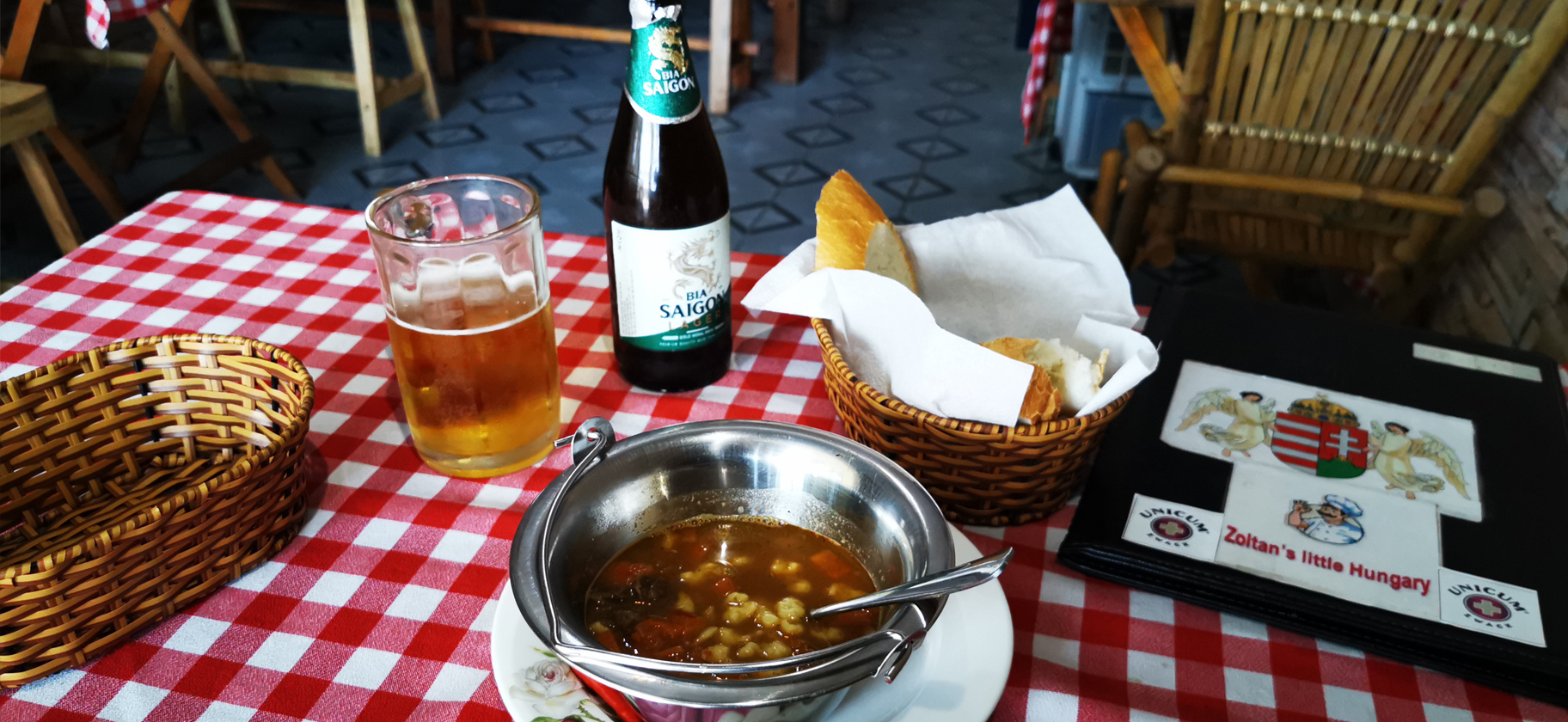
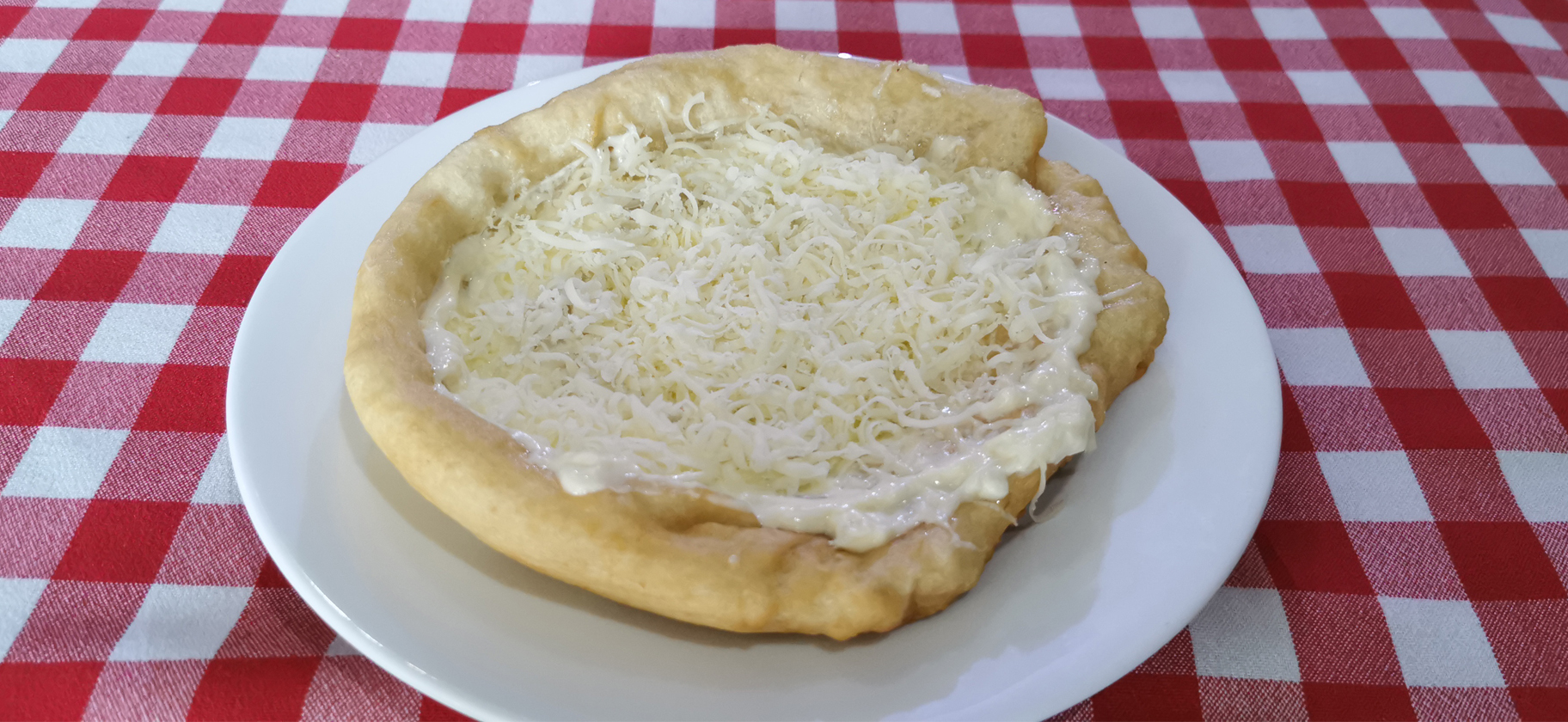
Zoltan was from Újpest, a suburb to the north of Budapest, but had left Hungary twenty years ago working first in Dahab, Egypt as a dive instructor where he stayed for over a decade. He had come to Vietnam first also as a dive instructor seven years ago but had given that up to start the restaurant which he has been running now for the last three years. “The business of running the restaurant,” he opined, “is like the ocean. It goes up, and it comes down. Then it goes up. And it comes down”. He admitted that most of the locals simply don’t know about Hungarian food. Some who had travelled in the past to other communist countries had come back with a knowledge of Hungarian food, but as clientele they were outnumbered by the Russians and other Eastern Europeans who often vacation in Nha Trang.
Robbi, a German from Augsburg, and I chatted as we enjoyed a helping of lángos that was warm and crisp and made the sour cream and cheese sweat a little. The short syncopated staccato of the Vietnamese language being spoken in the street created a polyrhythm with the soft flowing and vowel-harmonized tones of Hungarian that were playing over the radio in the restaurant. Occasionally the smell of soy and fish sauce wafted in from outside and collided with the cool milky taste of the sour cream and created an unexpected clash of cultures that made the room spin in a way that, for a moment, made you forget where you were.
I looked at Zoltan and thanked him for the brief escape when he explained, “When I opened the restaurant I made a promise to have a house rule that anyone who enters speaking Hungarian gets to have some pálinka.”
“I thought you said that pálinka was too difficult to get here in Vietnam?” I asked.
“Just because it’s hard to get doesn’t mean that I don’t have any,” he said with a wink.
